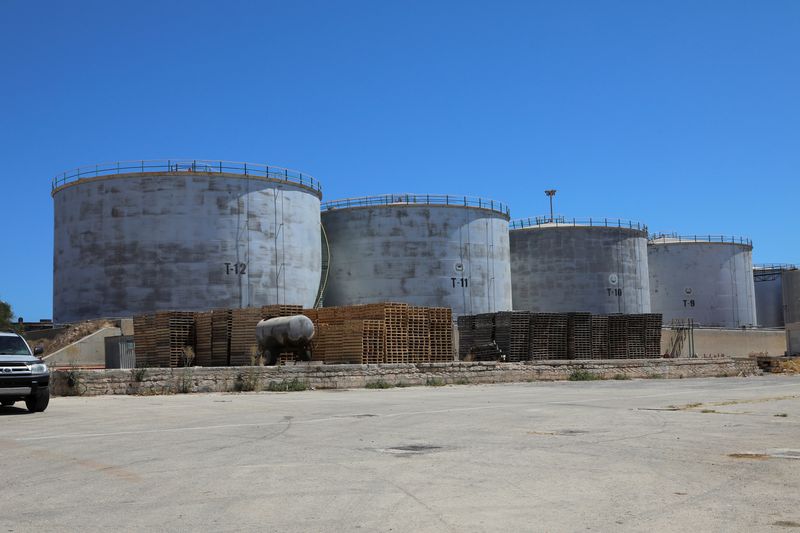By Scott DiSavino
NEW YORK (Reuters) - Oil prices fell about 2% on Tuesday on worries that slower economic growth in the U.S. and China could reduce demand for energy, especially after prices surged over 7% during the prior three days.
Brent futures fell $1.88, or 2.3%, to settle at $79.55 a barrel, while U.S. West Texas Intermediate (WTI) crude fell $1.89, or 2.4%, to settle at $75.53.
"Today’s price pullback, although significant, still fell within range of a normal and deserved correction following a substantial three-day $6-per-barrel advance," analysts at energy advisory firm Ritterbusch and Associates said in a note.
Technical traders noted that prices of both contracts pulled back after failing to break above resistance around the 200-day moving averages on Monday.
With U.S. gasoline futures still trading near a six-month low, the 321-crack spread, which measures refining profit margins, held near its lowest level since February 2021 for a second day in a row.
"If the refiner is not making money on gasoline and distillate, then the refiner is going to buy less crude oil to make gasoline and distillate. The barrels he does not buy will get sent to storage," Bob Yawger, director of energy futures at Mizuho, said in a note.
In the U.S., consumer confidence rose to a six-month high in August, but Americans are becoming more anxious about the labor market after the unemployment rate jumped to near a three-year high of 4.3% last month.
That increase in unemployment helped boost expectations the U.S. Federal Reserve will cut interest rates next month. Lower rates can boost economic growth and demand for oil.
UBS Global Wealth Management sees a 25% chance of a U.S, recession, up from 20% previously, citing soft numbers in the July labor report.
In Germany, meanwhile, the economy shrank in the second quarter.
Goldman Sachs (NYSE:GS) cut its average 2025 Brent forecast and range for prices by $5 per barrel, citing slower demand in China. The bank reduced its range for Brent prices to $70-$85 a barrel, and 2025 average Brent forecast to $77 per barrel from $82.
Worries about the economy in the U.S. and China offset bullish news out of Libya and the Middle East that could reduce supplies.
Prices rose strongly over the past few days due to the potential shutdown of Libya's oil fields that could curtail the OPEC member's roughly 1.2 million-barrel per day of output (some of which was already reduced), and other tensions in the Middle East following counterattacks between Israel and the Iran-backed Hezbollah group in Lebanon in recent days.
"The sense of dread in the Middle East seems to have dissipated after Israel thwarted a large-scale Hezbollah missile attack. ... It is interesting to note that Iran did not step in to help defend ... Hezbollah," Yawger at Mizuho said.
U.S. OIL INVENTORIES
Weekly U.S. oil storage data is due from the American Petroleum Institute trade group on Tuesday and the U.S. Energy Information Administration on Wednesday.
That data is expected to show that energy firms pulled crude from U.S. storage last week for the eighth time in nine weeks.

Analysts, however, projected last week's crude storage decline was just 2.3 million barrels during the week ended Aug. 23. [EIA/S] [API/S]
If correct, that withdrawal would be smaller than the decrease of 10.6 million barrels during the same week last year and an average decrease of 6.3 million barrels over the past five years (2019-2023).